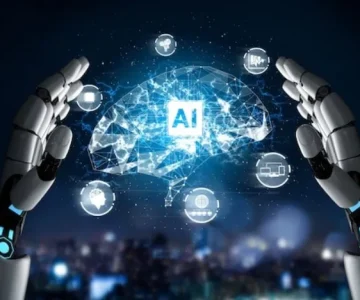The world of education is evolving rapidly, and one of the most exciting developments is the integration of generative AI into holistic learning approaches. This technology is not just a new teaching tool—it’s a shift in how we understand and support student growth. By blending advanced AI capabilities with well-rounded educational methods, schools can offer personalised, engaging, and meaningful learning experiences that address every aspect of a student’s development.
Understanding Holistic Education
Holistic education goes beyond grades and test scores. It focuses on nurturing students as complete individuals, balancing intellectual growth with emotional, social, and physical well-being. While traditional education often centres on academic performance, holistic education aims to help learners thrive in every area of life.
Core Elements of a Holistic Approach
- Emotional Growth: Guiding students to recognise, understand, and manage their emotions.
- Social Development: Building skills in teamwork, empathy, and effective communication.
- Cognitive Advancement: Encouraging curiosity, problem-solving, and creative thinking.
- Physical Wellness: Promoting healthy habits and active lifestyles.
How Generative AI Fits In
Generative AI uses sophisticated algorithms to produce customised content, insights, and solutions. In education, this means creating tailored lesson plans, providing instant feedback, and offering tools that adapt to each learner’s pace and needs. Teachers can focus more on meaningful interactions while AI handles repetitive tasks and content generation.
Key Advantages of AI in Holistic Learning
- Customised Learning Paths: AI adapts lessons to match a student’s strengths, challenges, and interests.
- Immediate Feedback: Students receive real-time guidance, enabling quicker improvement.
- Increased Engagement: Interactive AI-powered tools can make lessons more dynamic and enjoyable.
- Teacher Support: Automated processes allow educators to dedicate more time to personalised mentoring.
Supporting Emotional and Social Skills
AI can analyse communication patterns, group interactions, and behavioural cues to identify when a student might be facing emotional challenges. It can recommend targeted resources or encourage collaborative projects, helping learners develop empathy and interpersonal skills.
Fostering Intellectual Growth
Adaptive AI learning systems adjust lesson difficulty based on ongoing performance, ensuring students remain challenged without feeling overwhelmed. This encourages persistence, deepens subject understanding, and strengthens critical thinking abilities.
Encouraging Physical Well-Being
Technology can also promote healthier lifestyles. AI-powered applications can monitor activity levels, suggest personalised exercise plans, and even integrate movement into study routines, keeping physical health a natural part of learning.
Real-World Examples
From primary schools to universities, institutions are exploring AI-driven approaches to holistic education. In elementary classrooms, teachers use AI to design individualised lesson plans. High schools leverage it for collaborative, project-based learning, while colleges employ AI tools to improve digital literacy and prepare students for future challenges.
A New Era of Student-Centred Learning
Generative AI has the potential to transform holistic education into a truly personalised journey. By enhancing academic, emotional, social, and physical development, it creates an environment where students can flourish in every dimension of their lives. As schools adopt these tools, the focus shifts from simply delivering information to empowering each learner’s full potential.





